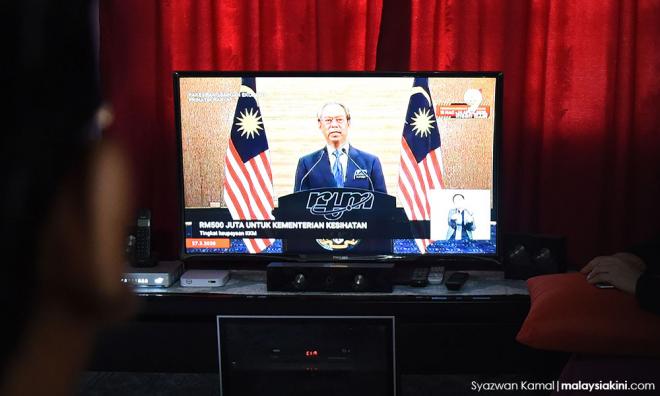
Last Friday, Malaysians were treated to a brief demonstration of honest admission by a politician. Newly appointed Prime Minister Muhyiddin Yassin conceded on national television that the Perikatan Nasional (PN) government now in power "may not be the government you voted for".
He didn’t stop there. Instead, he continued with an assurance: "But I want you all to know this government cares for you."
Personally, honest acknowledgement of culpability from a politician is a relief, and serves to remind other politicians about who they need to be accountable to. But any attempted assurance by those in power “that this government cares” for us needs to be assessed against available evidence. And the fact is, over the past few weeks, there is enough evidence to signal that Muhyiddin’s government is not as benevolent as he wants us to believe.
First, there was the act of excluding the five pro-Pakatan Harapan states from the prime minister’s special Covid-19 meeting in mid-March. That meeting was meant to coordinate enforcement of the movement control order across the nation. Among the states that were left out was Selangor, which at that point clearly had the highest record of Covid-19 cases.
Chief Secretary to the Government Mohd Zuki Ali (below) apologised, stressing that Muhyiddin had instructed for all heads of state governments to be invited. And yet, Zuki openly admits that meeting invitations were only sent out to chief ministers and menteris besar of the PN-held states.
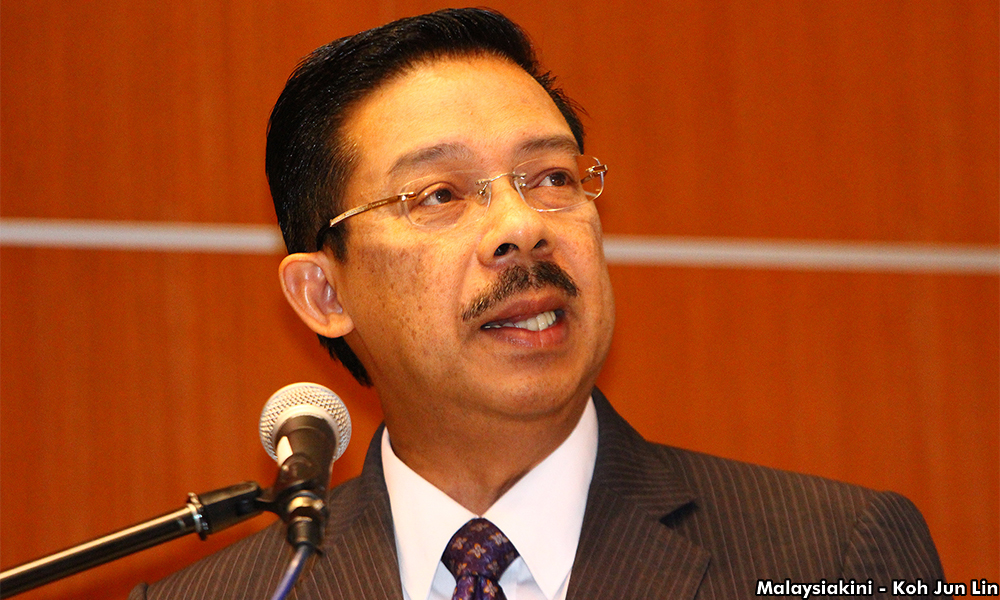
How does a prime minister’s expressed instructions get reinterpreted to mean something else for all Harapan-held states? Your guess is as good as mine. And on a matter as critical as fighting the spread of a pandemic, this should not have happened under the new government.
As a Selangor resident, it certainly didn’t feel to me like the new government cared about what happened to the people of Selangor. And I’m fairly certain my Penang relatives and friends would have felt exactly the same way.
To be fair, it could have been a miscommunication along the way. Or some little Napoleon in the chief secretary’s office going out of their way to curry favour with the new regime.
Unfortunately, however, this wasn’t the only incident where Harapan-held states were treated as undeserving of the same taxpayer-funded resources as the PN-held states.
Just three days after the Harapan states were excluded from the prime minister’s special meeting, Harapan MPs informed us that the annual allocations for their constituencies had been withdrawn. If it had just been one MP, that might have been an oversight. But it wasn’t just one MP. Just as it wasn’t just one Harapan state that had been excluded from the prime minister’s meeting.
When Muar MP Syed Saddiq Syed Abdul Rahman checked with the implementation coordination unit, he was reportedly told it was the Prime Minister’s Office (PMO) that had excluded his constituency. As a result, he said he had to use his monthly salary to assist Muar residents who were affected by the pandemic. Other Harapan MPs from Lembah Pantai and Johor Bahru also reported that their allocation had been withdrawn.
One has to wonder at the PMO’s intentions at denying opposition MPs their allocation at a time like this. Perchance, it’s to punish? Or to handicap? Or to demonstrate power?
No matter the actual answer, such an action clearly contradicts any claims that Muhyiddin’s government is a government that cares for the people. Because if it did, it would ensure that all MPs, regardless of political stripes, would have the resources they need to serve their constituencies at a time of grave crisis. In fact, Harapan MPs like Maria Chin Abdullah and Fahmi Fadzil (below) had to turn to the public for donations so as to be able to continue assisting the most vulnerable in their constituencies.
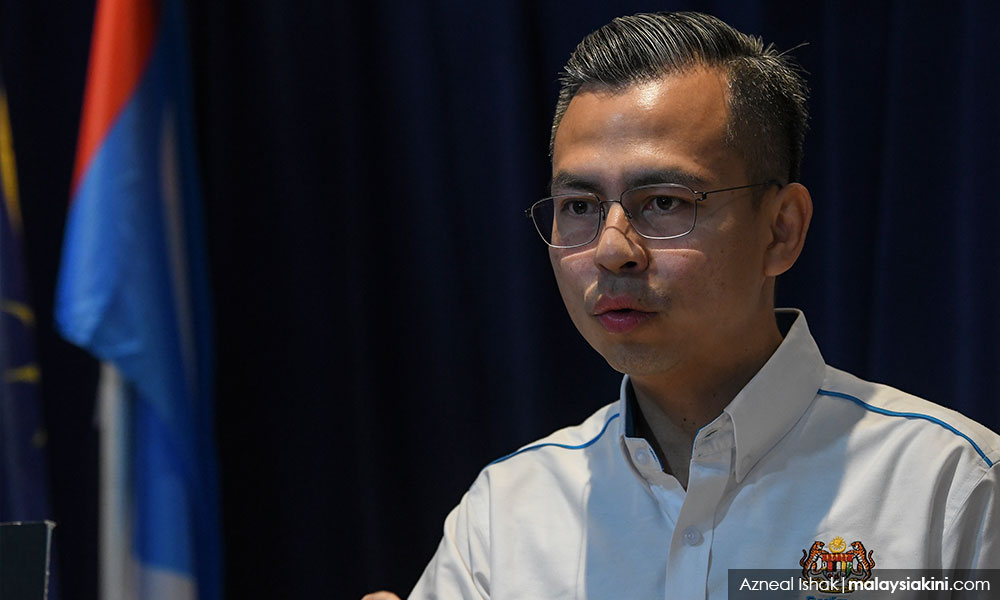
Election watchdog Bersih has aptly called out this discrimination against elected representatives in the opposition as “unscrupulous and undemocratic" because it holds voters at ransom. Granted, some of the Harapan-led state governments, namely Penang, Selangor, and Negeri Sembilan, were shamefully and similarly bypassing state assemblypersons from the opposition.
Equal funding to all elected representatives should be a given in a democracy, even more so during a national crisis of international proportions. It’s hard to believe that Muhyiddin's government really does care for all of us, when it so blatantly prevents equal distribution of public funds to all constituencies.
As if all of that wasn’t enough, Muhyiddin’s government has been busy fiddling around with political appointments at a time when all focus needs to be on stemming Covid-19 infections.
Last Thursday for example, Women and Family Development Minister Rina Harun sacked three community activists from the National Welfare Foundation. Now, why would a minister do something like that at a time like this, when the activists had reportedly been doing a fine job under the previous administration?
In whose interest did that action serve? Clearly, it wasn’t to serve the interest of the public, hundreds of whom rightfully protested.
Because of the backlash, on the next day, Rina asked one of the activists, Syed Azmi Alhabshi, to continue assisting the foundation until the conclusion of the pandemic.
If it was just one minister, you might be forgiven for thinking, “Ah, may be an anomaly.” Over-eager ministers aiming to secure their political positions in the new, new Malaysia shouldn’t surprise us, unpalatable as it may be.
However, Rina wasn’t the only minister keen to act decisively in the interest of partisan politics instead of in the public’s interest. Before Rina’s termination of community activists from the foundation, Federal Territories Minister Annuar Musa had announced the revocation of appointments in all Resident Representative Councils under 10 Harapan-held federal constituencies.
Annuar’s justification was that these councils, known by its Malay acronym of MPP, were guilty of inactivity since their appointments under the Harapan administration. Among others, Annuar said he had received complaints of unsatisfactory services and non-compliance of guidelines. He claimed, for example, that these MPPs hadn’t submitted activity reports, including expenses.
If that was indeed the criteria, how is it that only MPPs in Harapan-held constituencies came under scrutiny? Further, the existing evidence does not support Annuar’s justification.
Fahmi pointed out that actually the MPP in his constituency of Lembah Pantai had received a gold rating by Kuala Lumpur City Hall and the ministry only a month ago. The excellent rating was in recognition of “quality of work, completed reports and activities on the ground”, Fahmi said.
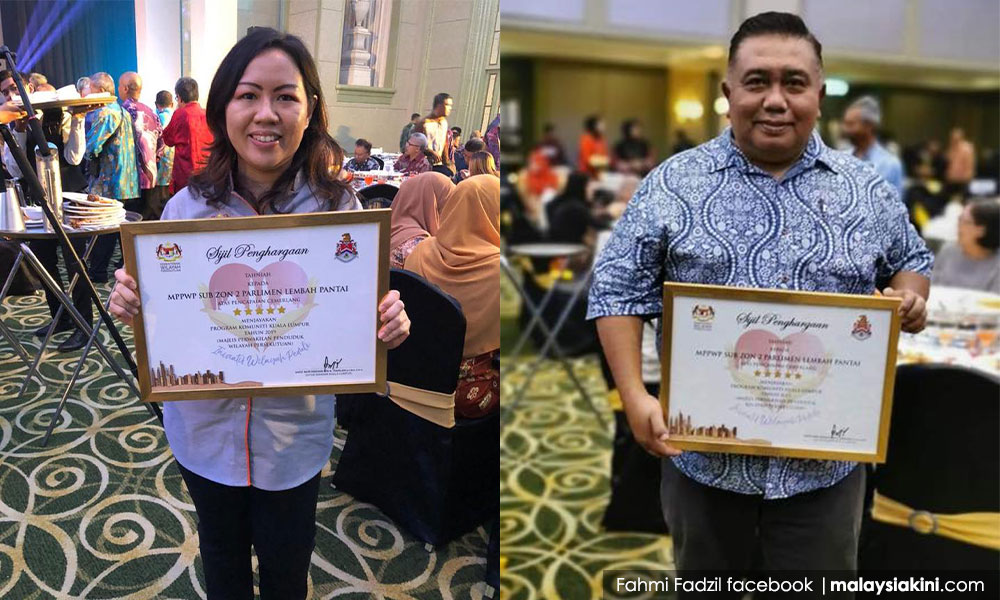
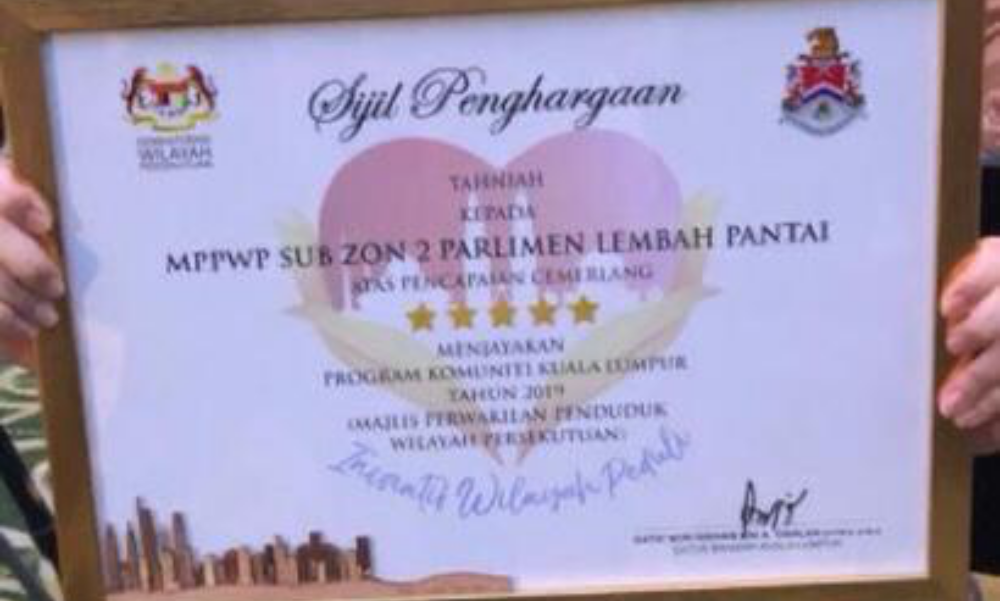
When I spoke to Fahmi to better understand the role that MPP appointees play, he explained that their current focus was on welfare and problem-solving.
“They have been distributing food and funds. Often they will notify my office about a need in the community or a complicated case that needs attention,” he said.
For example, Fahmi, said, the MPP in Lembah Pantai was currently coordinating with various agencies to fix a broken water pipe in a neighbourhood.
Now, let me play devil’s advocate for just a moment. Perhaps Annuar’s allegations are true, and the restructuring is justifiable. Annuar has promised that new appointments would take not more than 14 days.
But any number of days, what more 14, is a long time when economically vulnerable groups are having to cope with radical disruption. While waiting for the restructuring, which could have waited until after Covid-19, who do vulnerable individuals and families turn to if their community leaders have all been sacked by the minister?
Hence, my question again, what was the minister thinking? And whose interest is being served when decisions like these are made?
Implicit in Muhyiddin’s assurance that his government is a government that cares for the people is a plea for citizens to trust the government. He is not the only one who understands the importance of trust at a time like this.
Minister in the Prime Minister’s Department Mustapa Mohamed made the same call last week, asking Malaysians to give their undivided trust to the newly-appointed prime minister and his backdoor government.
But trust is earned. It is secured and then sustained by actions over time. It is not a given because of public assurances. And it is certainly not made true when the evidence points to an incongruence between what is being said, and what is actually being done.
JACQUELINE ANN SURIN is a Drama@Work consultant, a specialist meeting facilitator and a leadership coach. She was an award-winning columnist, a journalist for 20 years, and the co-founder of The Nut Graph before switching careers. - Mkini



No comments:
Post a Comment
Note: Only a member of this blog may post a comment.